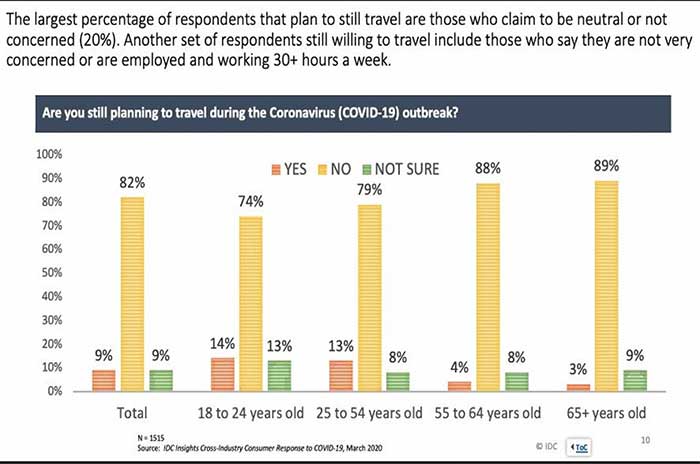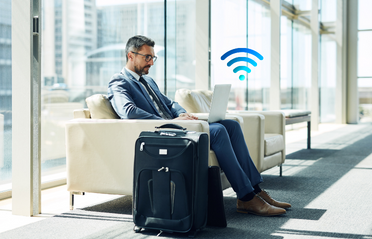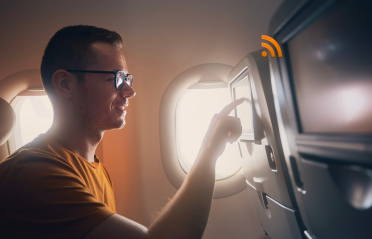The world is currently battling with the unprecedented effects of the COVID-19. With the UN claiming it to be a crisis on humanity like never before, it has put our social fabric and cohesion under tremendous stress. In the face of this fatal virus, the economies worldwide have come to a standstill, making the travel restrictions and social distancing policies the new normal.
Impact of the Outbreak
The hospitality industry has taken a massive hit around the globe with occupancy rates dropping by 59% in US hotels alone. Significant declines are also forecasted in average daily rate (ADR), occupancy, demand, and revenue per available room (RevPAR) for 2020.
Current forecasts predict a deep economic contraction in the first half of the year, followed by a bounce-back in the latter half. However, there could also be a prolonged economic uncertainty that would resist a sharp bounce-back. As hotels counter this economic crisis, there will be a dire need to assess the business continuity and operational challenges, both for the short and long term, and understand the impact on Cash, Working Capital, and Profitability.
The severe situation had stalled travel plans for the majority of the people around the world but it is expected that hotel bookings will see a recovery after September 2020. However, it is also predicted that people will be more inclined towards traveling domestic rather than international. Thus, it is imperative for the hotels to be prepared before the business starts to ramp up and use this interim period as an opportunity to overhaul their legacy systems.
The need of the hour
1. Regain Guest Confidence
The core of the relationship between any brand and its consumers is “the trust”, and thus recapturing guest confidence should be the primary step for any brand amidst this pandemic situation. At a time when consumer confidence is at an all-time low, communication will play the lead role in re-assuring the guests of the safe environments at different hotels. Also, within the hotel premises, the way hotels empower their guests with increasingly relevant and timely information, will also hold the key for future
2. Revisit Hospitality Offerings
Hotels will need to review their existing service offerings to adapt to the “new normal” and provide a touch-free experience to their guests when they arrive at the property. To achieve this, Hotels will need a transformation in their daily operations to provide an experience that would ensure that both the guests and the hotel staff are in safe hands.
3. Employee Well Being
A turnaround is also expected in the hospitality industry at the employer level. The current working models need to be re-evaluated for efficiency with ‘employee wellbeing’ positioned higher than ever in the hotel’s priority list. Providing them with safety kits and eliminating the different touchpoints while serving the guests are the major needs of the hour.
4. Regulatory Compliances Liabilities
In this new environment, hotels need to adopt new practices to regulate the environment in which the business happens. Once the operations begin, stern measures on sanitation and hygiene will be very important and hotel properties will have to not just be aesthetically clean but also clinically clean. It will also be important to ensure that the mandatory regulatory guidelines such as social distancing are being followed at their properties
Hotel Digital Transformation: Unlocking Technology’s Caring Feature
Technology has always been a primary component in driving a hotel’s value proposition to provide a home-like experience to guests. In a post COVID scenario, it will have a big role to play in furthering the digital transformation journey of the hotels. Digital solutions that can identify touchpoints and ensure minimum physical contact among the guests and the employees at each point of contact will take the center stage.
1. Contactless Journey for Guests
The operational goal will be to make the guest and the staff journey seamless, reducing the physical touchpoints while they are at the property. The journey starts the moment guests/staff enter the property where a touch-less identification and mobile check-in is needed to avoid the long queues at the reception. Digital keys to access the rooms or elevators would be another aspect to avoid the physical touchpoint with the doors.
Smart devices such as sensor-based lights or gesture control features in washrooms can further elevate the touch-less ecosystem of the hotel
Touch-less experience means that the users are enabled with these services on their own mobile devices and avoid contact with any other vulnerable surfaces. In spite of many solution providers working with the hotels to incorporate such offerings, the major challenge which the hotels face is to get their applications downloaded onto the guest’s devices. HSC’s Next Generation Hotspot (NGH) solution can help hotels in overcoming this challenge and further boost their mobile-first strategy by providing the touchless and secure access to the available hotel services without the need for users to download any application on their devices.
2. Ensuring Social Distancing
Digital solutions which can help hotels in ensuring that the social distancing guidelines would help them mitigate the legal liabilities which they need to comply with. One way is to re-design the common areas and communal facilities like health clubs, restaurants, and salons to ensure minimum human contact and drive guests to relish those spaces. Another relatively easier way is to ensure it, via technology, where hotel staff or the guests are informed of any such violation, enabling them to take appropriate actions. Solutions such as People Insights AI and Intelligent Monetization Platform (IMP) can empower hotels with such features by using the existing infrastructure of security cameras or hotel wi-fi network.
3. Real-Time Communication
An important role will be played by the effective communication of the brand to empower their guests with the right information at the right place and at the right time. Besides engaging guests at the premises based on their locations, Proximity Marketing can enable the hotels to notify them regarding any violations of the allowed number of people in a surrounding area, information about room-service delivery, or even informing them if their room is ready to check-in.
Hoping for a beginning of an End
COVID-19 is pushing the industry to manage, adapt, and respond to the uncertainty and risk associated with this global health incident. Managing the guests’ & employees’ safety and delivering as per guests’ expectations will not be considered a competitive advantage, but rather an industry imperative. HSC with its portfolio of solutions and accelerators can be a technology partner for the hotels in their digital transformational strategy for the future.

 Product Engineering Services Customized software development services for diverse domains
Product Engineering Services Customized software development services for diverse domains
 Quality Assurance End-to-end quality assurance and testing services
Quality Assurance End-to-end quality assurance and testing services
 Managed Services Achieve scalability, operational efficiency and business continuity
Managed Services Achieve scalability, operational efficiency and business continuity
 Technology Consulting & Architecture Leverage the extensive knowledge of our Domain Experts
Technology Consulting & Architecture Leverage the extensive knowledge of our Domain Experts




